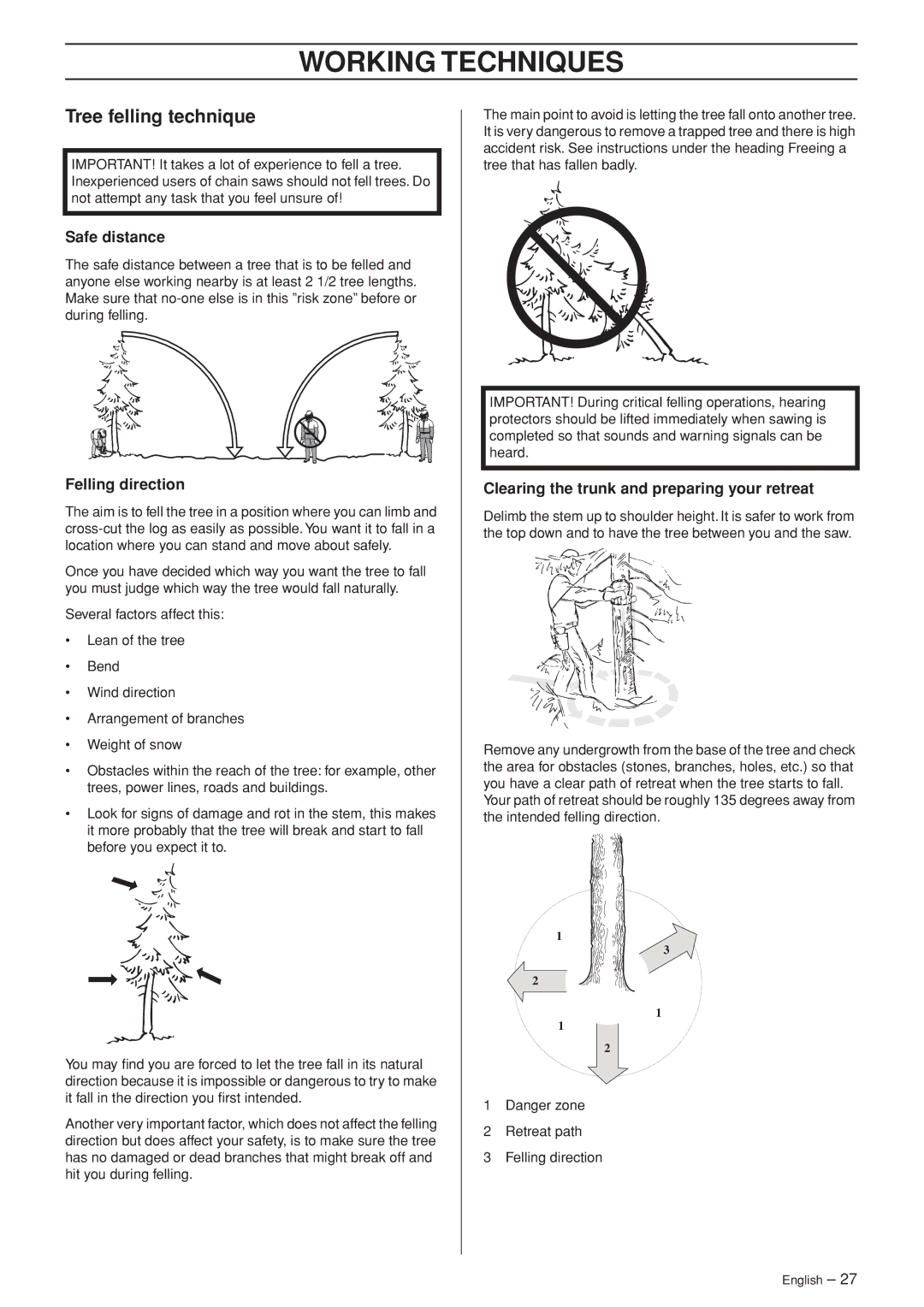
WORKING TECHNIQUES
Tree felling technique
IMPORTANT! It takes a lot of experience to fell a tree. Inexperienced users of chain saws should not fell trees. Do not attempt any task that you feel unsure of!
Safe distance
The safe distance between a tree that is to be felled and anyone else working nearby is at least 2 1/2 tree lengths. Make sure that
Felling direction
The aim is to fell the tree in a position where you can limb and
Once you have decided which way you want the tree to fall you must judge which way the tree would fall naturally.
Several factors affect this:
•Lean of the tree
•Bend
•Wind direction
•Arrangement of branches
•Weight of snow
•Obstacles within the reach of the tree: for example, other trees, power lines, roads and buildings.
•Look for signs of damage and rot in the stem, this makes it more probably that the tree will break and start to fall before you expect it to.
You may find you are forced to let the tree fall in its natural direction because it is impossible or dangerous to try to make it fall in the direction you first intended.
Another very important factor, which does not affect the felling direction but does affect your safety, is to make sure the tree has no damaged or dead branches that might break off and hit you during felling.
The main point to avoid is letting the tree fall onto another tree. It is very dangerous to remove a trapped tree and there is high accident risk. See instructions under the heading Freeing a tree that has fallen badly.
IMPORTANT! During critical felling operations, hearing protectors should be lifted immediately when sawing is completed so that sounds and warning signals can be heard.
Clearing the trunk and preparing your retreat
Delimb the stem up to shoulder height. It is safer to work from the top down and to have the tree between you and the saw.
Remove any undergrowth from the base of the tree and check the area for obstacles (stones, branches, holes, etc.) so that you have a clear path of retreat when the tree starts to fall.
Your path of retreat should be roughly 135 degrees away from the intended felling direction.
1
3
2
1
1
2
1Danger zone
2Retreat path
3Felling direction
English – 27
